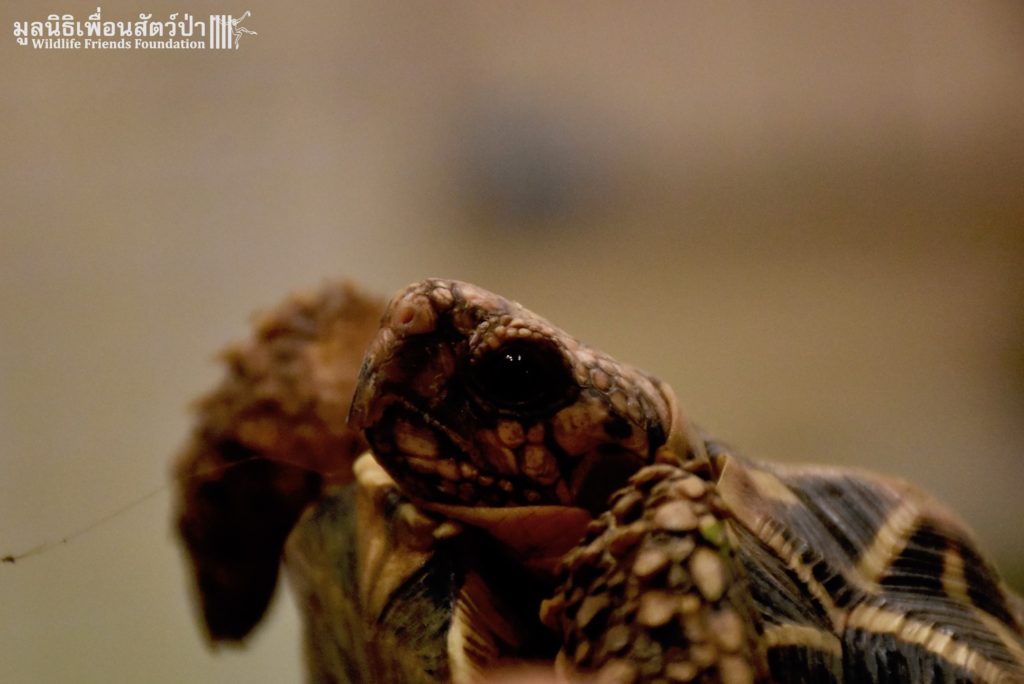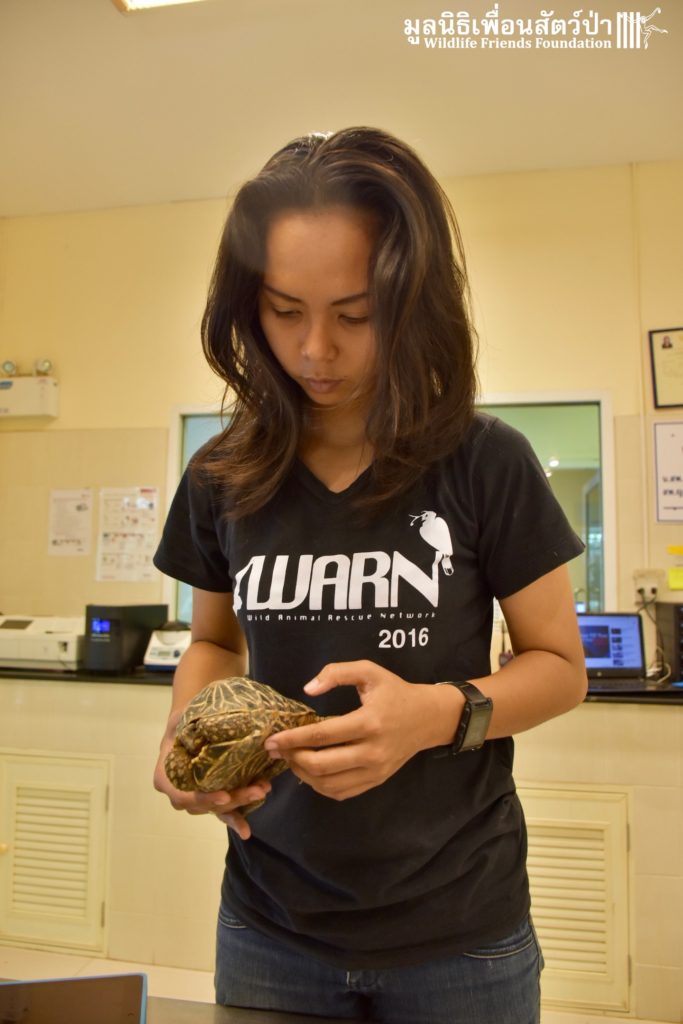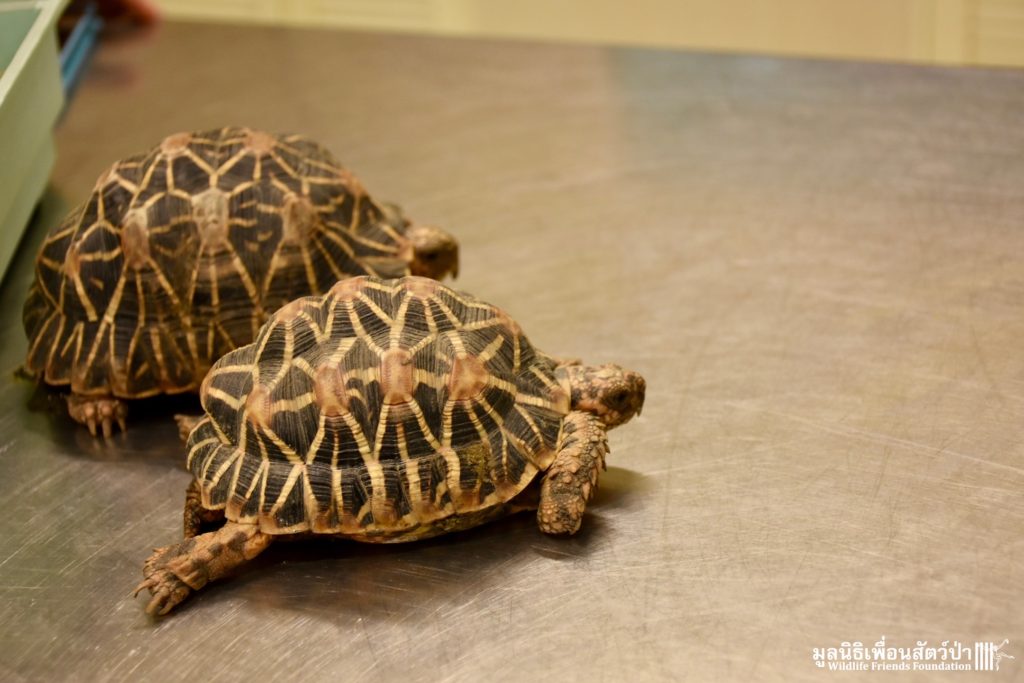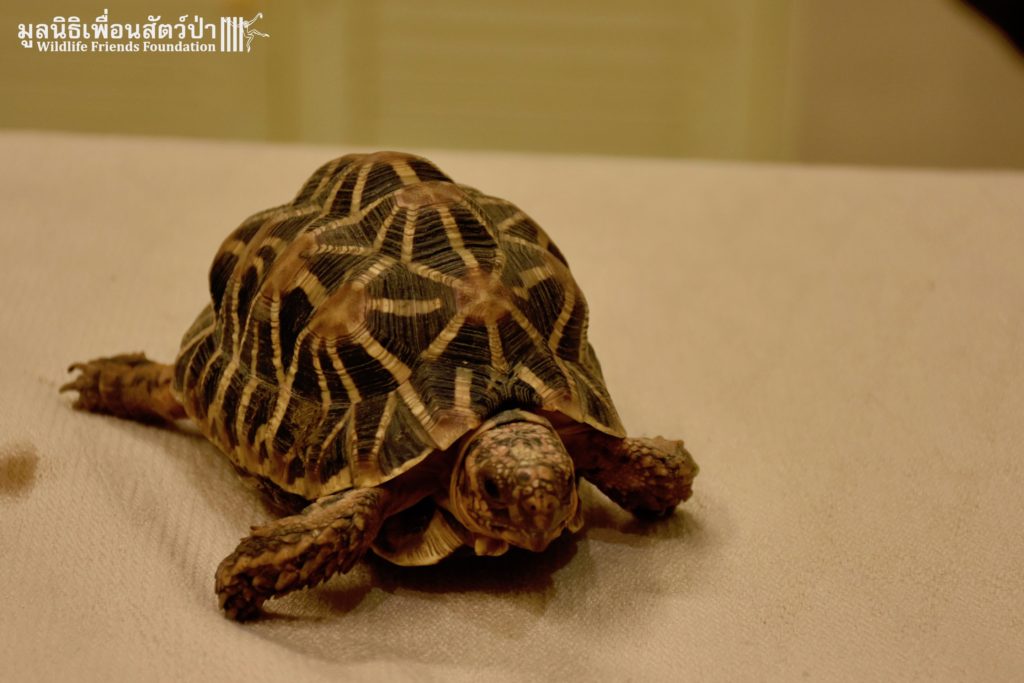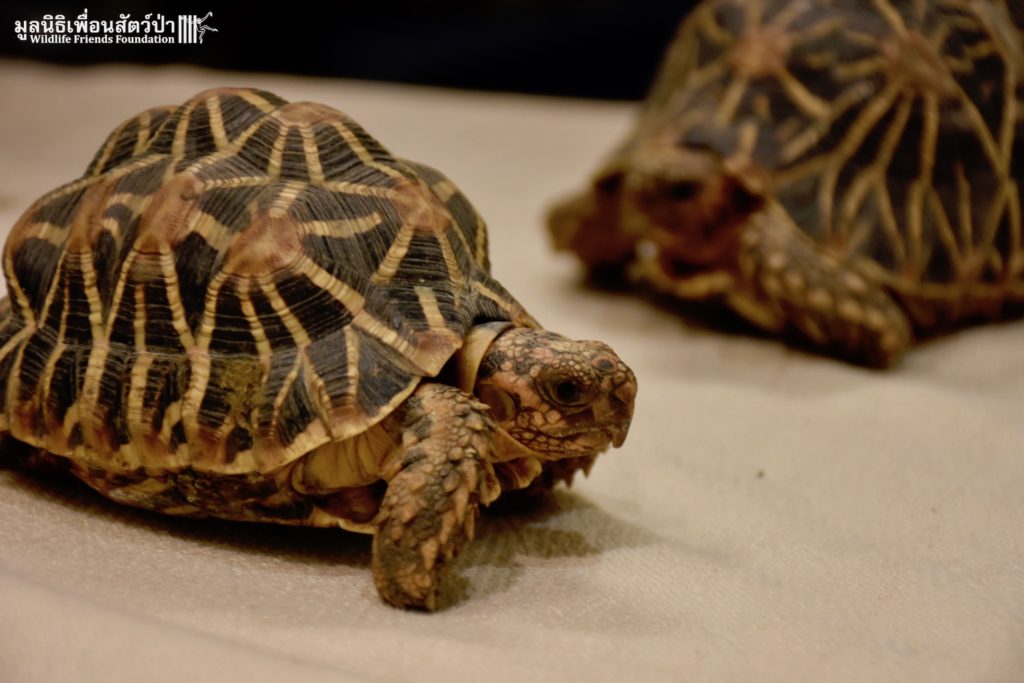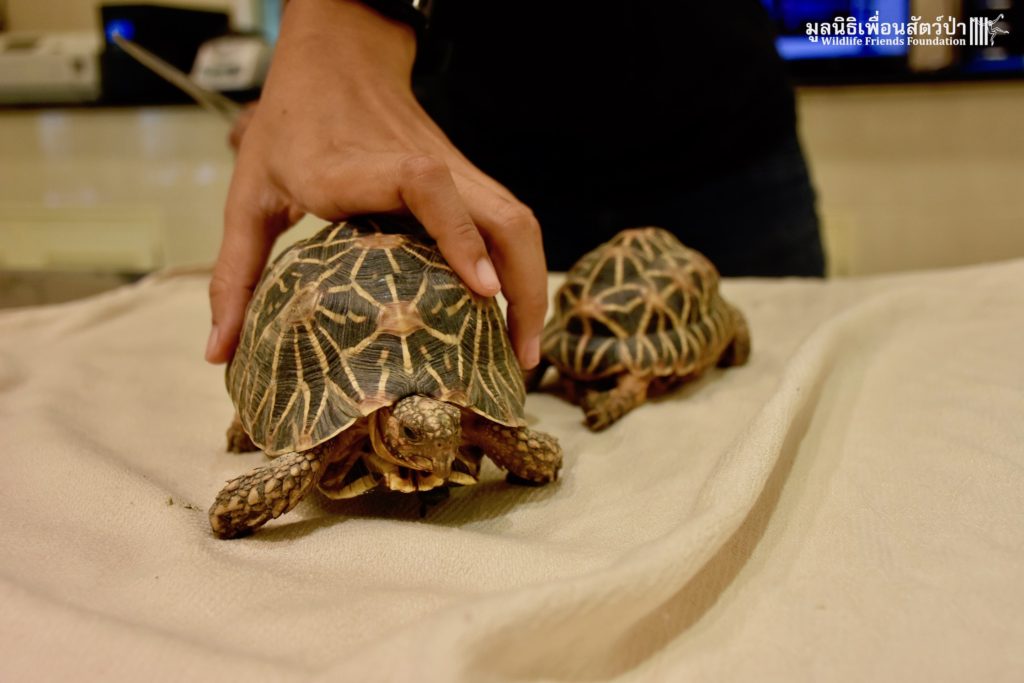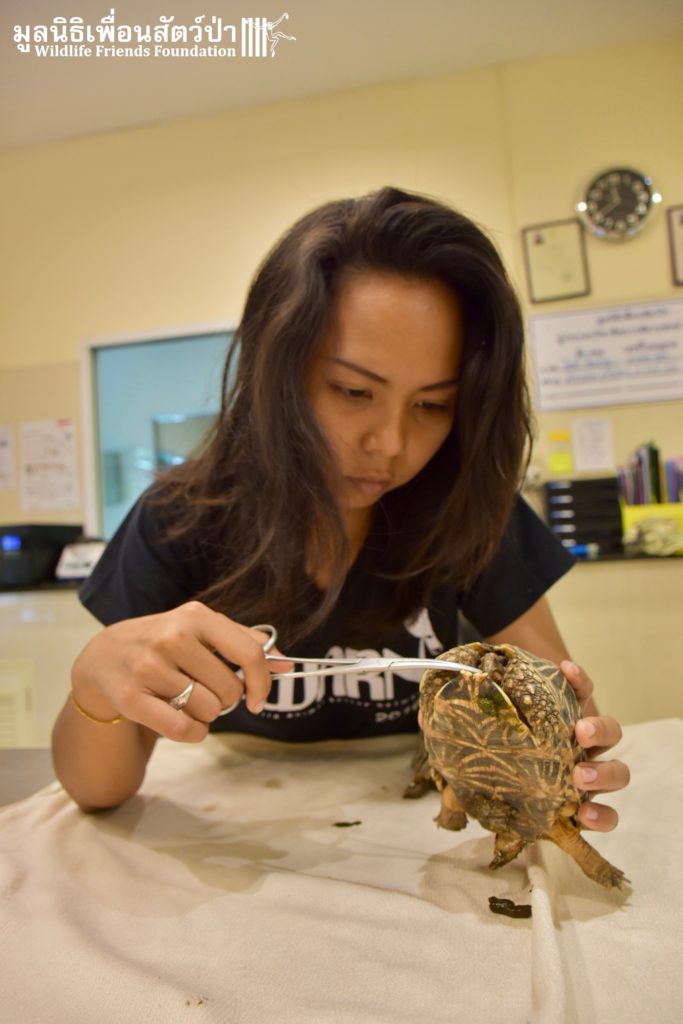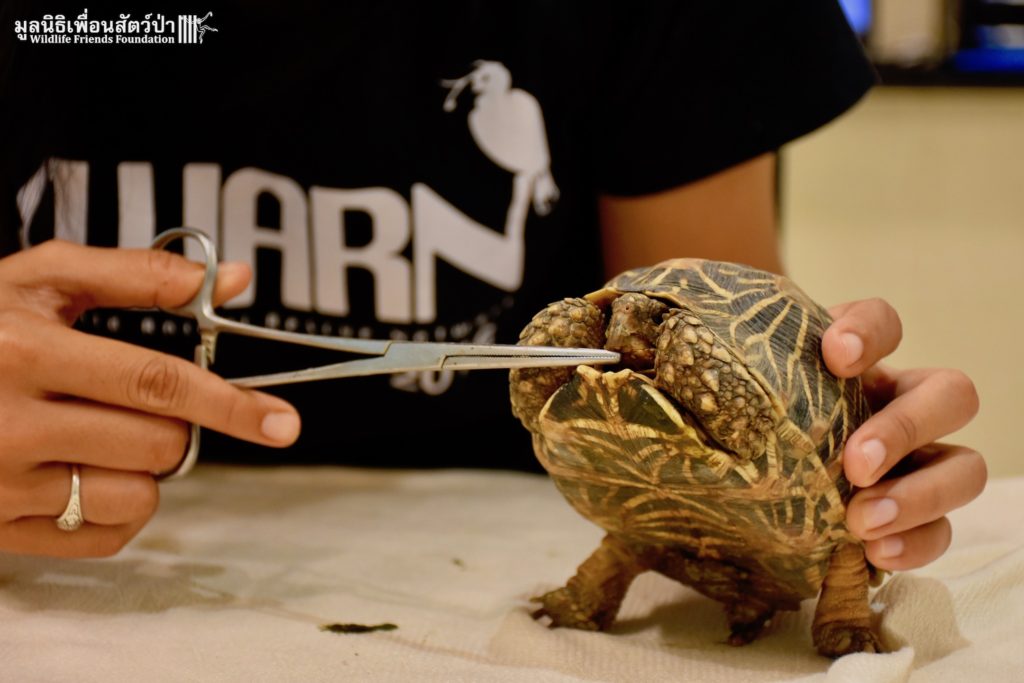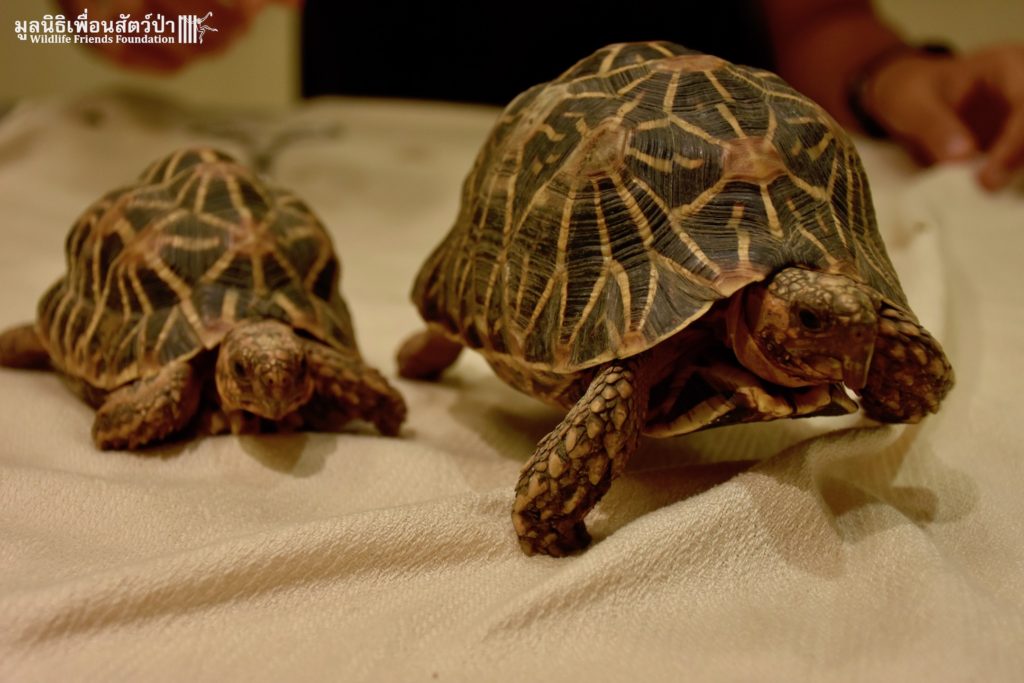Toby, the red-eared terrapin, has become a part of the WFFT family and is now starting a new chapter at the sanctuary after being kept as a pet.
Indian Star Tortoises Arrive at WFFT
Meet Shani and Devi, two young Indian star tortoises (Geochelone elegans). They were bought from a market and kept as pets for the first year of their lives. The owner had to move away and could no longer care for them so contacted us for help. They arrived at WFFT this morning.
The Indian star tortoise is listed as Vulnerable (VU) by the IUCN Red list of Threatened Species, studies have shown that the illegal wildlife trade is increasingly targeting this species to meet apparently increasing international demand for use as ‘exotic pets’ A recent conservative estimate of annual pet-trade export is 10,000 to 20,000 animals (mostly juveniles). Most of the pet trade involves small to medium- sized animals, few exceeding 10 cm reported the illegal collection of at least 55,000 (mostly juvenile) tortoises from just one location from India over a period of one year. Extensive conversion of their habitat to less suitable agricultural land is likely to reduce populations further in the future.
There are concerns that this species is being illegally smuggled from India into pet markets in Asia, Europe, and the United States. However, the majority of animals appear to be destined for use as exotic pets in Asian countries, such as Thailand, China, and Malaysia. This species was the most frequent illegally traded tortoise seized by Thai authorities between 2008 and 2013 (5966 individuals during 15 cases) and is the most commonly observed tortoise at the infamous Chatuchak Weekend Market in Bangkok, Thailand.
Since 1975, this species (as Testudinidae spp.) has been included on Appendix II of the Convention on International Trade in Endangered Species of Wild Fauna and Flora (CITES). Consequently, international trade in specimens can take place if an export permit or re-export permit is acquired. However, there are concerns that legislation in other Asian countries is being exploited to facilitate illegal wildlife trade. For example, this tortoise is not currently protected under Thailand’s Wild Animal Reservation and Protection Act (WARPA) making it difficult for enforcement authorities to distinguish illegally traded wild sourced individuals from those that have been legally bred in captivity. As such review of existing legislation relating to the commercial use of this species in key consumer countries is warranted (IUCN).
Little Shani and Devi will spend sometime adjusting to their new lives at WFFT at the WFFT Wildlife Hospital to properly assess their health. They will then move into a large open grass field, a little different than the small bird cage they were kept in as pets, in Bangkok.

